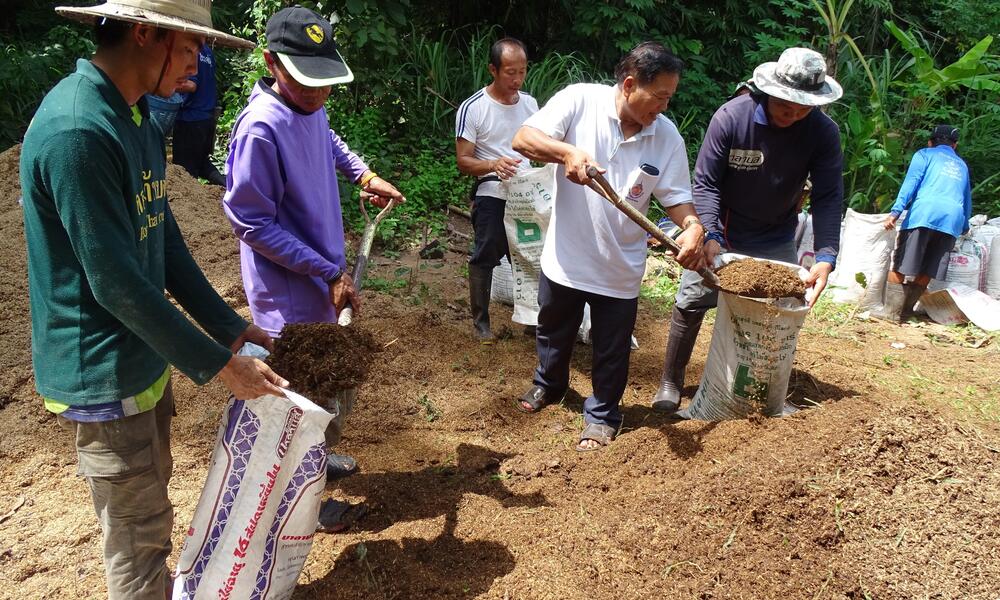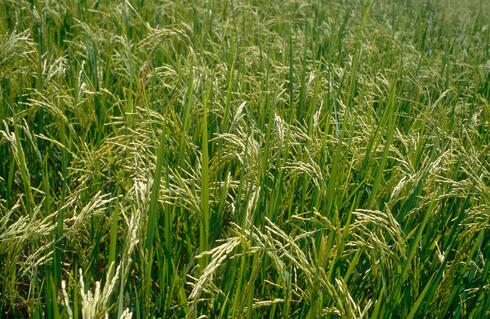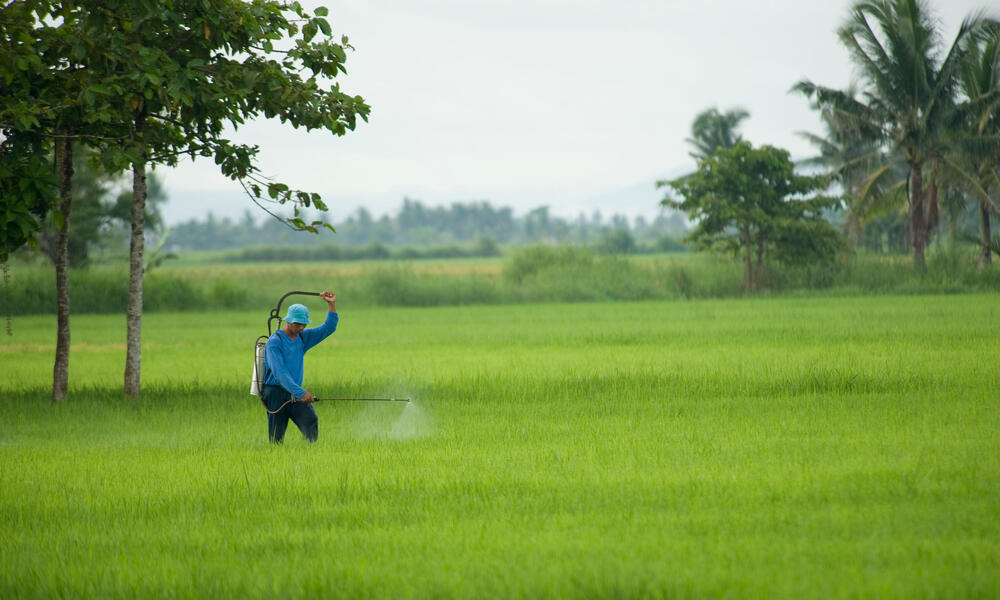“The fish in the rice field would feel ‘leathery’. Some fish only had heads, and their tails would be worn off,” Decha said.
“When we used only chemical fertilizers, I would get itchy and my skin would get leathery, too. Each time I went into the rice fields I would get infections from the water.” Tinnakorn added. “The water quality has improved since we changed to organic fertilizers.”
Since 2015, WWF-Thailand has supported this initiative through capacity building which has helped the group to grow to 35 members. In partnership with HSBC, WWF has supported the group with seed funding which now helps each member produce a share of around 7,700 pounds of organic fertilizer each to use and sell.
With more interest and manpower from their neighbors, Decha and Tinnakorn have taken the role of educators, sharing their knowledge and practices with their own community and others. Now able to produce their own from manure and organic compost which would otherwise have been wasted, they are not only able to save expenses on chemical fertilizers and protect freshwater sources but also generate extra income and empower other farmers.
Combined, these local communities accumulate decades—and generations—worth of wisdom valuable to sustainable agriculture and environmental conservation. Through care and observation, it is they who can touch, feel, and sense the land, the plants, their health, and their growth, sometimes better than chemical test kits and lab equipment, using none but their naked eyes, bare hands, and full heart.


